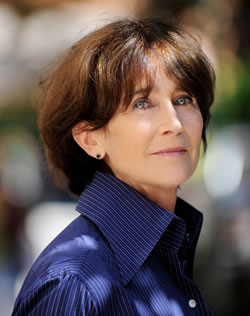|
All the fiction I write arises from the same sort of impulse: it's a feeling of discomfort, a kind of unspecified anxiety, a need to uncover something that troubles and disturbs me. I write toward that feeling. I try to explain it to myself in order to disarm it, to rob it of its potency. I don't know how this explanation will happen. I don't know how the disarmament will take place, or what else will happen in the process.
What I do know is what form it will take: I always know whether a subject should be explored in a short form or the long form, that is, as a story or as a novel. For me, these two forms are very different, right from the start.
When I write a short story, I start out with a particular moment that I find troubling, or compelling, or devastating. Sometimes it's a moment that I've been part of; sometimes it's something that I've watched happen; sometimes it's something I've heard about. That moment itself is always drawn from life; it's always a moment that I find deeply disturbing. If it's powerful enough, then I need to write about it.
My task then is to write a narrative that will make that moment become as powerful for you, the reader, as it was for me, the writer. I must describe a landscape, introduce characters, and create the action as it unfolds, but all of this is directed toward the creation of that last vivid moment—difficult and breathtaking—that I found so compelling.
Writing a short story is, I imagine, sort of like driving a team of horses—stylish, high-stepping Hackneys, say, with polished harnesses and an immaculate carriage. My task here is to control the energies and the spectacle, to restrain the faster horses and urge the slower ones, so that all of them pull in concert, so the story will reach the finish line with all the parts of it—the plunging narrative drive, the hidden emotional baggage, the formal vehicle that contains it—moving in unison, and so that everything will arrive together.
A novel, on the other hand, is entirely different, and the process is entirely different. I start a novel when I'm interested—and troubled—by the idea of a conflict that connects and divides a group of people. That conflict and those people are the driving force of the book. I get to know the characters very well. I often write brief biographies of them. I come to know their backgrounds, what sort of lives they came from, who their parents were, where they went to school, and so I come to know how they will react to things. I come to feel sympathy for them, and compassion. Then I begin the novel.
In this, the long form, the characters and the conflict create the story. When I start to write a novel, I have no idea of what will happen at the end of it. I have no outline, no story line, no synopsis. It's the characters who will create the narrative; it's they who will create the final conclusion, the ending. My job is to discover the characters, learn their settings, and then to harness them all to the conflict. It's their combined energy that will carry me forward, and this process seems to me a bit like driving a dog team—wild, exciting, and a bit risky.
Once I've gotten to know all these dogs, and have gotten them hitched together onto the sled, there's very little question of control. All I can do is stand behind them on the runners, holding tight to the handlebars, squinting into the distance to see where we're headed. I can shout out directional orders, I can keep us away from bad ice, or keep us heading north, but you can't tell a dog team to stop—did you know that? There is no “halt” command for huskies.
So as they start to move across the snow I jump onto the sled and we set off, hurtling through an unknown landscape, toward a destination I've never seen.
|


